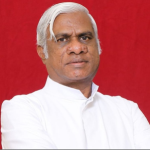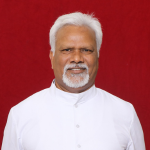| Founder | St. John Bosco |
| Principal Patroness | Mary Help of Christians |
| Titular Saint | St. Francis de Sales |
| Motto | Give Me Souls; Take Away the Rest |
| Beginning of Don Bosco’s work | 08.12.1841 |
| The name ‘Salesian’ adopted | 26.01.1854 |
| Date of Foundation | 18.12.1859 |
| Decretum Laudis | 23.07.1864 |
| Approval of Constitutions | 03.04.1874 |
| The Canonization of Don Bosco | 01.04.1934 |
Don Bosco was born on August 16, 1815, in the small village of Becchi in northern Italy. From a young age, he felt a strong calling to help poor children. At just 9 years old, he had a dream that revealed his life's mission: to care for disadvantaged youth. In 1835, he entered the seminary, supporting himself by working various jobs, including tailor, blacksmith, shoemaker, carpenter, violinist, acrobat, and magician. These diverse skills proved invaluable throughout his lifelong work with young people. Don Bosco was ordained a priest on June 5, 1841, and moved to Turin. On December 8, 1841, he met an orphan named Bartolomeo Garelli, who became his first pupil. From that moment, Don Bosco’s efforts expanded quickly, establishing homes and schools for impoverished boys in Italy and beyond. He passed away on January 31, 1888, and was canonized in 1934 as the Apostle of Youth.
The Salesian Congregation of Don Bosco, founded in 1859 by St. John Bosco, is a Roman Catholic religious order dedicated to the education and welfare of youth. Following the principles of reason, religion, and loving kindness, Salesians serve in schools, youth centers, and parishes worldwide. Their mission focuses on empowering underprivileged youth through education, vocational training, and pastoral care. Active in over 130 countries, the Salesians emphasize holistic development and moral guidance. They also engage in missionary work, social services, and advocacy for children's rights. Inspired by St. John Bosco’s preventive system, they foster a family-like environment. The congregation includes priests, brothers, and lay collaborators working for the betterment of society. Their motto, Da Mihi Animas, Caetera Tolle (“Give me souls, take away the rest”), reflects their deep commitment to youth ministry.
The Salesians of Don Bosco arrived in India in 1906, establishing a strong presence in education, youth ministry, and social development. Guided by St. John Bosco’s vision, they run schools, colleges, technical institutes, and youth centers across the country. Their work focuses on uplifting marginalized youth, particularly in rural and underprivileged communities. Salesians in India are actively involved in vocational training, child rights advocacy, and pastoral care. With numerous provinces and institutions, they play a vital role in education, skill development, and social transformation. They also engage in relief work, supporting disaster-affected regions and promoting sustainable development. Their initiatives include rehabilitation programs for street children, empowerment of women, and interfaith harmony efforts. The Salesians collaborate with the government and NGOs to expand their outreach and impact. Committed to Don Bosco’s preventive system, they continue to shape the future of India’s youth with faith and compassion.
The first Salesian Missionaries to India arrived in Tanjore in the state of Tamil Nadu on 14th January 1906. On 8th February 1934 the Indian Province, which had Mgr. Louis Mathias as its Provincial, was bifurcated into the Province of North India and the Province of South India. The Salesian Province of Chennai, with St. Thomas the Apostle as its patron was established on 24th January 1934 with Fr. Eligius Cinato as its first Provincial. The Chennai Province has given birth to several other Provinces namely; Salesian Provinces of Mumbai, Bangalore, Tiruchy and the Vice Province of Sri Lanka.
The Chennai Province is one of the largest provinces in the Salesian Congregation with 406 Salesians. The province comprises of 49 canonically erected communities and 7 presences and operates in 8 Dioceses—6 in Tamil Nadu, 1 in the Andaman Islands, and 1 in the Apostolic Vicariate of Southern Arabia. The Chennai Province (INM) primarily covers the northern part of Tamil Nadu, with its headquarters at Don Bosco Provincial House, The Citadel, Chennai. It also includes the Union Territories of Puducherry and the Andaman & Nicobar Islands, along with the following districts of Tamil Nadu: Chennai, Chengalpattu, Dharmapuri, Karaikal, Tiruvallur, Kallakurichi, Kanchipuram, Vellore, Ranipet, Tirupattur, Tiruvannamalai, Villupuram, Krishnagiri, Cuddalore, the Nilgiris, parts of Erode (Thalavadi), and Fujairah in the United Arab Emirates (UAE). The province actively engages in 39 different ministries, focusing on the upliftment and holistic development of the young people and the poor and the deserving.
We, the Salesians of Don Bosco, of the Province of St. Thomas the Apostle, are committed to carry out our Founder St. John Bosco’s apostolic mission in the Church: to be the signs and bearers of the love of God for the young and the poor.
Open to the good cultural values of our land, and following the values of the Gospel in the Salesian way, we, along with the members of the great Salesian Family and our lay collaborators, educate and evangelize the young and the poor, to build a world that is sustainable, just and humane and thus contribute to the building up of the Kingdom of God.

Provincial
Fr. Don Bosco Lourdusamy SDB

Vice Provincial
Fr. John Alexander SDB

Economer
Fr. Edwin Vasanthan SDB

Fr. Johnson Bashyam SDB

Fr. John Christopher SDB

Fr. John Christy SDB

Fr. Jesudoss Perianayagam SDB

Fr. John Britto Savarinathan SDB

Province Secretary
Fr. Joseph Franklin Alphonse SDB

Secretary to the Provincial
Fr. Jerry Arumainathan SDB
N SOCIETY
Education and formation of youth on the constitutional values of the Nation and on environmental responsibilities to become agents of social change.
A loving accompaniment and empowerment of Orphans and Semi-Orphans in Salesian presences.
Employability-focused skill education in resourceful and well-equipped technical institutes and colleges.
Witnessing to the prophetic character of Salesian community life through radical religious discipline and generous availability for the missions.
Absolute priority in making our educational institutions to serve the poorest and initiate new frontiers that offer the best to the least.
Formation of lay mission partners in Salesian charism and pedagogical leadership in view of a gradual entrusting of leadership roles of co-responsibility in the Educative Pastoral Community (EPC).
THE SOUTH INDIA SALESIAN SOCIETY
registered under the Societies Registration Act XXI of 1860 No. S. 20 of 1945-1946